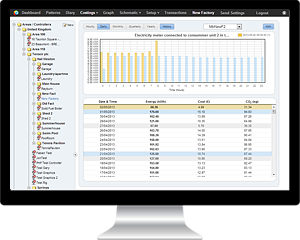Energy efficiency ratings should play a more important role for mortgage lenders
Mortgage lenders should consider a property’s actual EPC rating when evaluating mortgage affordability and lending, rather than a general assumption, a new report from the Building Research Establishment (BRE) and the Wales Low / Zero Carbon Hub suggests.
The study, which looked at over a hundred properties across the UK, found a clear link between EPC ratings and energy bills. Similarly sized homes can have fuel bills that vary by more than £90 a month which can be predicted by their property’s Energy Performance Rating, and these variations should be factored into mortgage calculations, say the report’s authors.
Andrew Sutton, from the Wales Low / Zero Carbon Hub, said: “By encouraging mortgage lenders to consider actual fuel costs, the lenders can offer mortgages that are capped according to EPC rating, thereby offering higher mortgages for more energy efficient homes, and be more confident that the borrower can afford their repayments.”
“Current mortgage calculations use broad estimates of fuel costs averaged across all UK homes, but proving a strong link between EPCs and real bills could bring in a smarter approach – and one that could be argued as more responsible lending. So does Andrew see a change ahead? And how soon are we talking?”
“I would hope that in three years’ time mortgage products that are linked to the EPC rating of the property to be purchased are commonplace; it does seem in everyone’s interest that borrowers can afford their repayments, and with fuel bills rising, these costs should be carefully considered to be confident of that affordability.”
Efficient and effective Building Energy Management Systems are capable of delivering extensive monitoring and control options, compared to basic controls. They typically employ data from a variety of sources (boiler flow and return sensors, internal and external temperature sensors, occupancy sensors, humidity sensors, etc.), and enable the perfect optimization of a building’s boiler-based central heating system.
If you’d like to find out more about the savings enabled by the HeatingSave Building Energy Management System, just contact our dedicated product team, they’ll be more than happy to answer all of your questions and queries.






